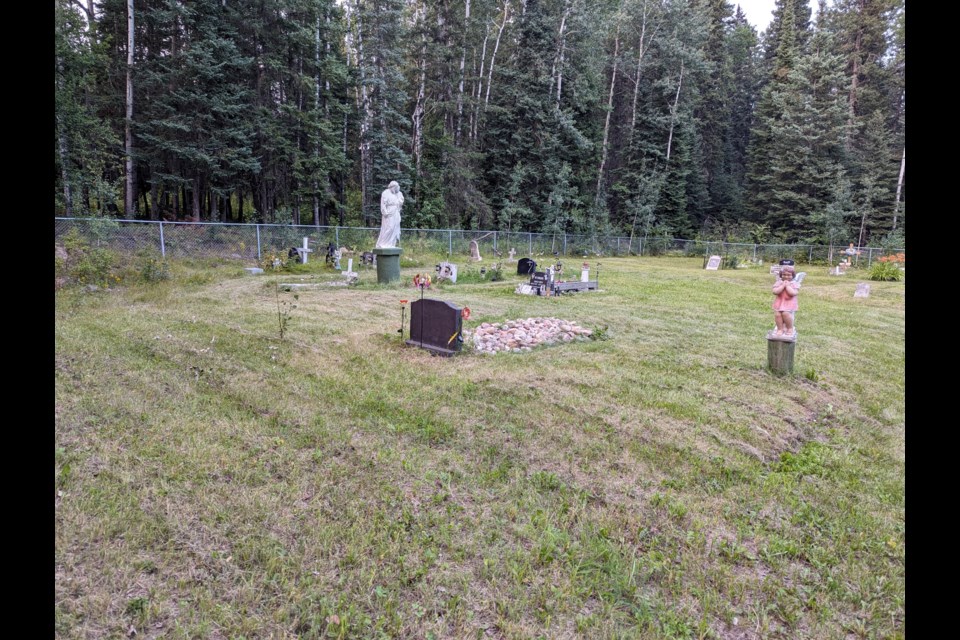SASKATOON — The distressing news of possible unmarked grave sites found on the grounds of the former Beauval Indian Residential School shook the English River First Nation on Tuesday, Aug. 8. The community, situated north of Saskatoon, is appealing for privacy during this time, which has reopened old wounds, particularly for the survivors.
This revelation follows a two-year investigation involving ground-penetrating radar at the former school's cemetery. The examination identified an estimated 83 potential unmarked graves. The initial phase of the inquiry, commencing in August 2021, encompassed a substantial area within and around the school cemetery.
In a statement, ERFN Chief Jenny Wolverine said the sorrowful announcement, revealing that further scrutiny of the unmarked grave sites unveiled that most of the remains were children or sub-adults in size.
“Twelve of these unmarked graves are an average length of only 2.5 feet, indicative of infant burials. This tragic discovery aligns with multiple witness accounts of infants being born and subsequently passing away, as recounted by survivors of this institution," said Wolverine.
The ERFN leadership has assembled a special council composed of community members, elders, and survivors. This council provides guidance and direction for the subsequent steps following positive GPR findings in specific areas of interest at the site. Survivors' testimonies have pointed to additional potential sites, which will undergo GPR investigation over the upcoming year.
"Our elders and survivors request privacy over the next fortnight, allowing for the observance of appropriate protocols and ceremonies to honour the lives of these infants and children. We humbly beseech the public and the media to respect the First Nation's privacy and the Beauval community as we collectively navigate this sensitive and delicate matter," said Wolverine.
The ERFN Elders Council, in a separate statement, extended their sympathies to the survivors and the entire community. They offered prayers for all affected by this news after nearly two years of relentless efforts to uncover unmarked graves at the site of the former residential school.
"We fully recognize the impact of this news on survivors and their descendants across the nation; our thoughts are with each one of them. These findings, though distressing, do not astonish us. Tales of appalling abuse have circulated within our communities for generations, reflecting horrifying and harrowing experiences shared by survivors,” said the Elders Council.
"We can affirm that we have been privy to heart-wrenching survivor accounts detailing physical, sexual, emotional, and spiritual abuse. These accounts encompass stories of children perishing under suspicious circumstances and even instances of infant births and deaths within the school."
In addition, the Elders Council disclosed that this heartrending discovery corroborates the narratives passed down by elders and survivors. The records provided by the National Centre for Truth and Reconciliation are being reviewed and translated, as many are handwritten in French. This translation process is anticipated to span two to three years and is hoped to unveil the children's identities and their respective communities.
"These children and infants are now found, no longer lost or forgotten. We take solace in the fact that their final resting places can be duly marked and tenderly tended to," the Elders Council said.
"We believe that the spirits of these young ones were calling out to us, and their voices have finally been heard, leading to their discovery. Their spirits can now be honoured and reverently prayed for, following the protocols and ceremonies that are deserved."
The Elders Council emphasized that the commitment to investigating the remains of First Nations children in residential schools is an integral part of the nationwide pursuit of Truth and Reconciliation. This endeavour aims to validate the oral history of Indigenous Peoples.
"The revelation of truth must precede genuine reconciliation. We have long been privy to the truth about the Indian Residential School system. The stories shared by our parents, grandparents, and ancestors have always held our unwavering belief. With hope, the revelation of these grievous truths will pave the way for a new healing phase, culminating in true reconciliation," the statement concluded.




